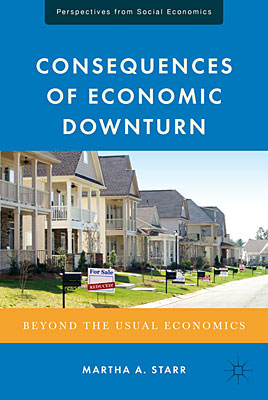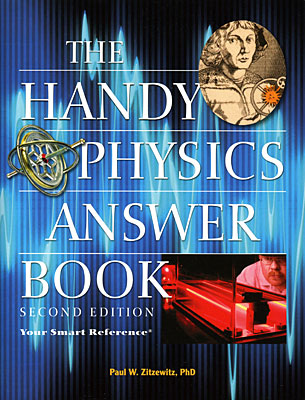Freshly Pressed highlights books written or edited by members of the UM-Dearborn community. Faculty, staff, alumni and students are welcome to submit their recently published titles to this column by e-mailing Reporter editor Jennifer Thelen at [email protected] with a summary of the book, a high-resolution JPEG of the book's cover and a URL where readers can purchase the title, if applicable.
Bruce Pietrykowski, professor of economics, has published a chapter titled "Beyond the Wasteland: A Report from Detroit," which appears in the book Consequences of the Economic Downturn: Beyond the Usual Economics edited by Martha A. Starr and published by Palgrave/Macmillan.
 The book focuses on the ethical and social dimension of the economic crisis, its impact on individuals and families, and the need to re-orient economic inquiry and policy. In the chapter on Detroit, Pietrykowski argues that the economic meltdown accelerated the steady decline that Detroit's manufacturing sector has experienced for several decades. Detroit now has 10 percent of the manufacturing workforce it had back in the 1950s. But Detroit's crisis is not just a blue-collar story. Beginning in the 1980s job losses spread to the white-collar segment of the labor force as Detroit's non-production workforce fell by 78 percent from 1982 to 1992.
The book focuses on the ethical and social dimension of the economic crisis, its impact on individuals and families, and the need to re-orient economic inquiry and policy. In the chapter on Detroit, Pietrykowski argues that the economic meltdown accelerated the steady decline that Detroit's manufacturing sector has experienced for several decades. Detroit now has 10 percent of the manufacturing workforce it had back in the 1950s. But Detroit's crisis is not just a blue-collar story. Beginning in the 1980s job losses spread to the white-collar segment of the labor force as Detroit's non-production workforce fell by 78 percent from 1982 to 1992.
As local residents know all too well, the auto sector was hit especially hard during the 2000s. In metro Detroit, auto employment declined by 60 percent from 2000-09. The severity of job losses in these traditionally unionized, well-paid industries had a devastating effect on the housing market. And, in turn, demand for public food assistance and school lunch support skyrocketed. Pietrykowski describes the human costs of the crisis and the inadequacy of the current social safety net to deal with such an economic shock.
He then reviews the traditional economic responses targeting urban redevelopment: large-scale business attraction; human capital development and recruitment, especially among 'creative' 'knowledge' workers; and export-oriented economic growth. Pietrykowski then explores a range of alternative responses to the crisis that are playing out in Detroit. First, he focuses on the creative re-use of abandoned land by artists and urban farmers. Next, he discusses efforts to re-value skills too-often neglected in the urban labor market. For example, food service workers are a large and growing segment of the employment base in metro Detroit. Yet, few workers receive adequate compensation and training to move up the job ladder and to turn a dead-end job into a meaningful career. Finally, he looks at the possibilities for re-directing development toward local businesses that serve local needs that would, in turn, generate local spending and job creation. These alternatives compel us to think beyond the usual economic strategies and policies.
Paul Zitzewitz, professor emeritus of physics and science education, has written the second edition of The Handy Physics Answer Book that was published recently by Visible Ink Press of Plymouth, Mich.
 The book, which is designed for the general public, is written in a question-and-answer format and includes the traditional fields of physics: motion and forces, momentum and energy, heat and thermal energy, waves, sound, and light, electricity and magnetism, atoms, nuclei, and sub-nuclear particles. It describes many applications of physics, both to technology and to every-day living. Included are discussions of cosmology, dark matter and dark energy, and possible futures of particle physics. There is also a strong emphasis on the history of physics, from the ancient Greeks through the medieval Islamic, Chinese, and Indian scholars, to the renaissance and modern physicists. There are very few equations, but many diagrams, tables, and photographs. The hope is that readers will be inspired to ask further questions and seek their answers.
The book, which is designed for the general public, is written in a question-and-answer format and includes the traditional fields of physics: motion and forces, momentum and energy, heat and thermal energy, waves, sound, and light, electricity and magnetism, atoms, nuclei, and sub-nuclear particles. It describes many applications of physics, both to technology and to every-day living. Included are discussions of cosmology, dark matter and dark energy, and possible futures of particle physics. There is also a strong emphasis on the history of physics, from the ancient Greeks through the medieval Islamic, Chinese, and Indian scholars, to the renaissance and modern physicists. There are very few equations, but many diagrams, tables, and photographs. The hope is that readers will be inspired to ask further questions and seek their answers.
Zitzewitz, who is treasurer of the American Association of Physics Teachers, the national organization for teachers of physics from high school through graduate school, attended the association's annual winter meeting in Jacksonville, Florida, in January. As treasurer he is a member of the executive board, chair of four committees and member of three others.
####



